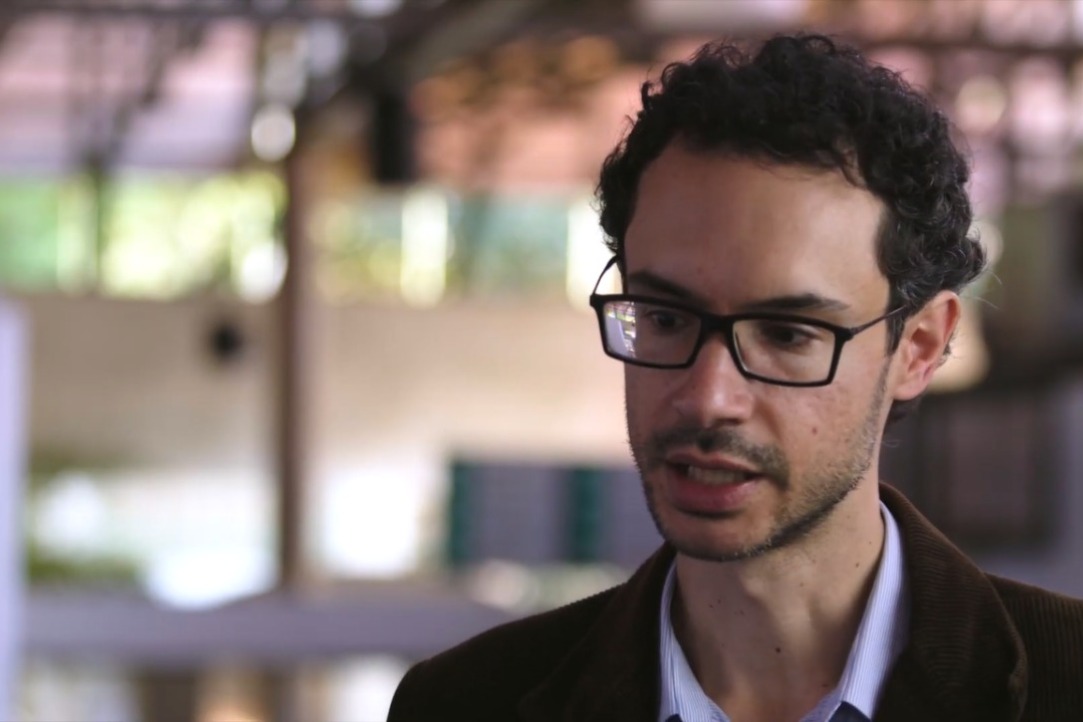
HSE University-St Petersburg Hosts 50 Students from Top Indian Universities
HSE University-St Petersburg hosted the Indian Students Week. The event gathered more than 50 students from India. The students represented 15 top universities in the country. In particular, there were representatives of IIT Bombay, IIT Delhi, UPES, IIM Amritsar and others. The goal of this large-scale initiative of HSE University-St Petersburg is to introduce talented students from India to educational opportunities in Russia, in particular, HSE educational programmes in four directions: business and economics, design, social and computer sciences.

Anti-Lectures, Jazz-Funk, and Drawing: HSE University Holds Economfest 2024
The Faculty of Economic Sciences celebrated its 32nd birthday. Students, graduates, teachers, and friends gathered for the traditional EconomFest at HSE University on Pokrovsky Bulvar. The event featured quizzes from language clubs, contests, lectures, and meetings with teachers. Festival guests enjoyed dancing, drawing lessons, new acquaintances and a three-tier cake, ie everything needed to make it a truly special event.

‘It Is Absolutely Necessary for Scholars and Students to Be in Contact with Peers Around the World’
Bruno de Conti, Assistant Professor at the University of Campinas (Unicamp, Brazil), has been cooperating with the HSE School of International Regional Studies for a few years. In his interview with the HSE News Service, he talks about the importance of developing academic cooperation between Russia and Brazil and shares his impressions of HSE University and Moscow.
.jpg)
Youth Considers Education the Main Life Choice
Researchers from HSE University have conducted a study among graduate students to identify which life choice they consider the most important. All respondents linked their successes and failures to education. Decisions in other significant areas, such as relationships with loved ones or choosing a place to live, were often viewed through the lens of education. The study was published in the journal Frontiers in Psychology.

'We Are Open to Cooperation on an Equal Basis and Will Find a Path to a Better Future'
How are digital platforms contributing to sustainable development? How is international cooperation progressing in Eurasia? How should the Russia-India business dialogue proceed? HSE University's scientists presented their answers during expert discussions at the St Petersburg International Economic Forum.

Consumer Prices Decrease in Densely Populated Areas
HSE University economists have proposed a novel approach to modelling monopolistic competition with heterogeneous firms and consumers. The results of collaborative research carried out by Alexander Tarasov from Moscow, his co-authors from HSE University–St Petersburg, together with the Norwegian School of Economics, the University of Pennsylvania, and the Free University of Brussels, have been published in American Economic Journal: Microeconomics.

HSE Students Represent Russia at BRICS+ Youth Innovation Summit in Pretoria
In May 2024, Pretoria, the capital of South Africa, hosted the BRICS+ Youth Innovation Summit, where students from HSE University represented Russia. They successfully defended their business projects and were among the top 15 speakers, winning the event. The summit was organised by the South African BRICS Youth Association (SABYA).

Season Eight of HSE CREATIVE OPEN Competition Begins
HSE CREATIVE OPEN international online competition of the HSE Art and Design School opens the summer season featuring new categories: ‘Visual Research,’ ‘Game Design,’ ‘Motion Design,’ ‘Poster,’ and ‘Digital Product.’

‘Everything Evermore All at Once’: New Exhibition at HSE ART GALLERY
HSE ART GALLERY, which was established in 2018, has launched a new exhibition area. The first project in the new space opened on May 28, 2024. The exhibition represents works by more than 50 HSE Art and Design School students and graduates in Contemporary Art, Fashion, and Subject Design.

Boundaries between Developmental Language Disorders and Typical Performance Blurred in Young Children
A new study by researchers at the HSE Language and Brain Centre and the Institute of Linguistics of the Russian Academy of Sciences can change the current understanding of language acquisition in young children, revealing that the boundaries between typical performance and developmental disorders are not as clear-cut as previously believed. Having tested more than 100 Russian-speaking children between the ages of 4 and 7, the researchers discovered that some children diagnosed with developmental language disorders (DLD) performed on par with their peers who did not have speech and language diagnoses. The study has been published in the Journal of Speech, Language, and Hearing Research.

